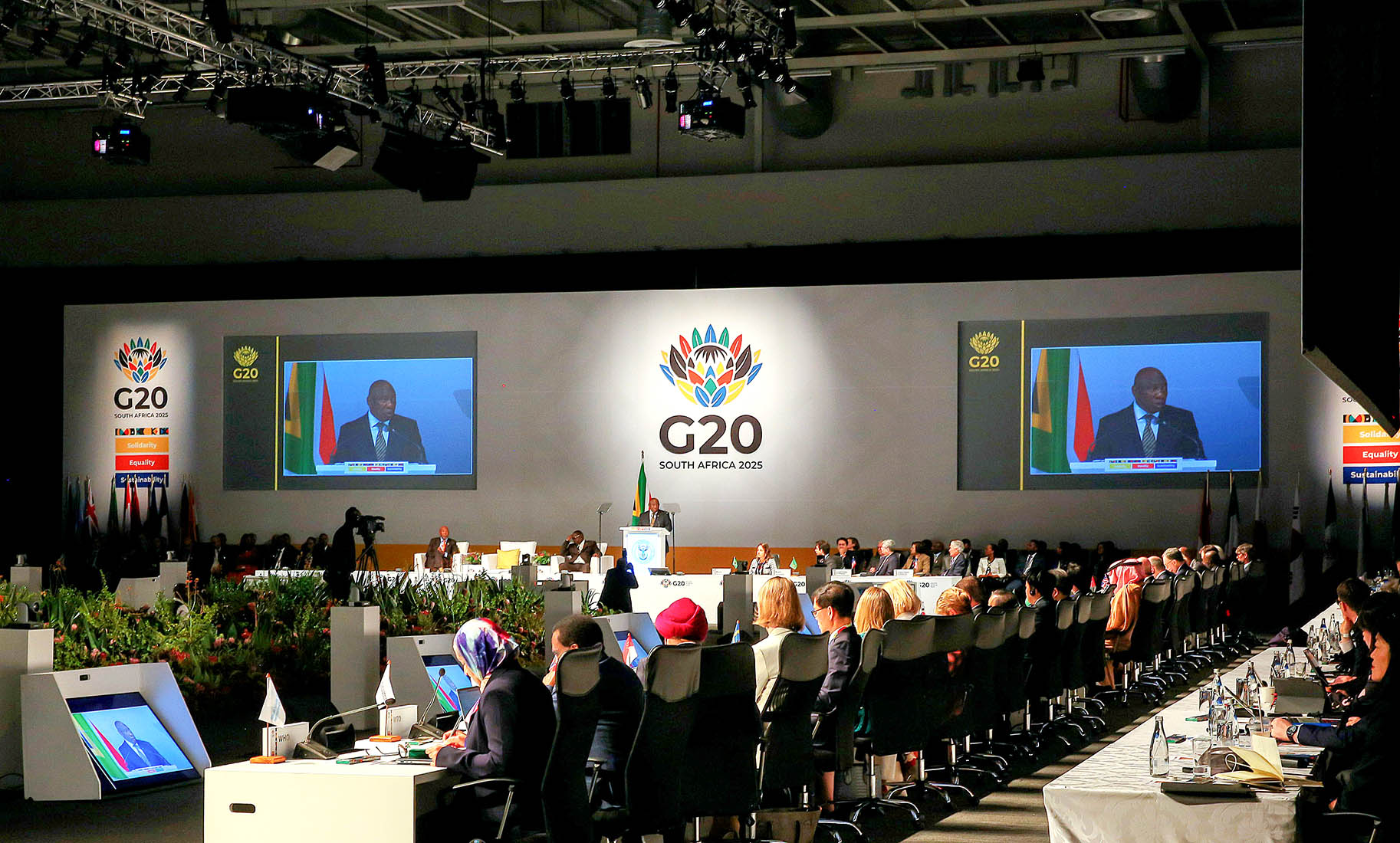
The Group of 20’s 20th regular summit, in Johannesburg on 22-23 November, is on track to produce a solid, workmanlike performance, and could do even more to confront new shared shocks that arise on the summit’s eve.
On the economy and finance, it is due to endorse the report of the G20 Extraordinary Committee of Independent Experts on Global Wealth Inequality (headed by the Nobel Prize-winning economist Joseph Stiglitz), the implementation monitoring review of the Finance Stability Board (FSB) to reinforce the G20’s work on financial stability and the FSB’s G20 cross-border payments roadmap, its recommendations on nonbank financial institutions (NBFI) leverage, and its new work on NBFI data challenges.
Read more: Africa’s debt and development take centre stage at G20 meeting in Washington
On development and employment, it is due to endorse the Seville Commitment’s detailed blueprint to close the sustainable development financing gap and reshape the global financial system; the Fourth Financing for Development Conference Compromiso de Sevilla call to expand social protection coverage by at least 2% each year; the report of the African panel of experts to address the impediments to growth and development in Africa, including the cost of capital; and the Nelson Mandela Bay Target to reduce the share of young people not in employment, education or training by a further 5% by 2030.
On digital technologies, it is likely to advance the G20’s AI for Africa initiative to accelerate implementation of the African Union’s continental AI strategy and endorse the results of the G20 Digital Economy Working Group and the work of the AI task force, the International Telecommunication Union’s AI Skills Coalition and AI Standards Exchange.
On energy and the environment, it will launch the G20 Critical Minerals Framework on responsible business conduct, contract negotiations and illicit trade, and endorse the Fund for Responding to Loss and Damage, the AU Climate Change and Resilient Development Strategy and Action Plan, the work of the African Risk Capacity Group and probably the results of the UN Ocean Conference in Nice and the work of the International Ocean Panel.
/file/dailymaverick/wp-content/uploads/2025/10/ED_582172-1.jpg)
And above all, leaders will endorse the G20@20 Report, which reflects on the G20’s achievements and working methods and recommends how to ensure that the G20 remains a key global forum for international economic cooperation, as its second 20-summit hosting cycle begins.
Read more: SA praised for achieving second G20 ministerial declaration on SDGs
These prospective achievements flow from a bottom-up approach, based on this year’s 24 ministerial meetings, which were led by finance ministers, foreign affairs ministers and central bank governors.
They are focused on President Cyril Ramaphosa’s wisely chosen key priorities: harnessing critical minerals for inclusive growth and sustainable development; strengthening disaster resilience and response; ensuring debt sustainability for low-income countries; and mobilising finance for a just energy transition.
Its leaders confront many key interconnected global challenges: wars and conflicts, climate change, health pandemics, poverty, rising debt levels in poor countries, terrorism, inequality, unemployment, the abuse of women, migration, artificial intelligence, unilateralism, nationalism, protectionism and isolationism.
However, a major and unprecedented constraint comes from US President Donald Trump’s decision to skip the summit. This removes the possibility of other leaders convincing a transactional Trump on the spot to agree to important things, as was done at the Canadian-hosted G7 Kananaskis Summit in June. It could also lead other important G20 leaders to skip the summit.
/file/dailymaverick/wp-content/uploads/2025/06/GettyImages-2220486892.jpg)
Read more: Controversy and speculation swirl around next two G20 summits — largely due to Donald Trump
However, Trump has already said he will host the G20’s next summit at his golf course in Miami on 13-14 December 2026 and focus on an economic and energy agenda with which all other leaders can agree.
As the newest member of the G20’s governing troika of current, past and future presidencies, Trump will not want his vice-president, JD Vance, who will attend this year’s summit in Johannesburg, to kill the G20 goose that will lay the golden egg for him in Miami next year. DM
John Kirton is the director of the G20 Research Group at the University of Toronto.




 Attendees listen to the opening address by President Cyril Ramaphosa at the G20 meeting in Cape Town on 26 February. (Photo: Dwayne Senior / Bloomberg via Getty Images)
Attendees listen to the opening address by President Cyril Ramaphosa at the G20 meeting in Cape Town on 26 February. (Photo: Dwayne Senior / Bloomberg via Getty Images)